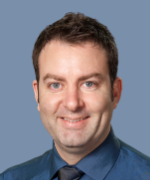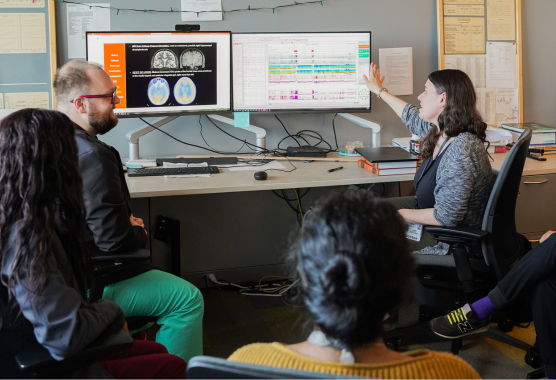The mission of our training program is to foster expert epileptologists of the future, who will provide the highest-quality patient care for a diverse population and make significant contributions to the field of epilepsy as clinicians, educators and researchers.
We are a National Association of Epilepsy Center (NAEC) level 4 comprehensive adult and pediatric epilepsy program and serve patients not only across Northern and Central California but also Nevada and southern borders of Oregon.
Our fellows gain expert experience in adult and pediatric scalp EEG interpretation (routine and ambulatory) with video, EEG interpretation for patients admitted to the Epilepsy Monitoring Unit (EMU), ICU EEG, presurgical phase 1 evaluations in the EMU, phase 2 intracranial EEG (stereotactic EEG and grids/strips/depth electrodes), neonatal EEG, electrocorticography, and functional cortical stimulation mapping. Trainees also work with each faulty member during outpatient clinic rotations and have an opportunity to participate in our Joint Family Planning clinic for women with epilepsy clinic that is run jointly along with OB-GYN, pediatric epilepsy clinic, and responsive nerve stimulation (RNS) clinics. Fellows will also get experience programming vagus nerve stimulation (VNS) and deep brain stimulation (DBS) devices during outpatient rotations. We are proud of our diverse faculty with a wide variety of training backgrounds which creates for a wholesome learning experience for our trainees.
During the first few weeks of fellowship, our fellows go through an educational bootcamp and receive 1:1 teaching from faculty to help lay a strong foundation. Over the course of the year, there are weekly didactics and monthly journal clubs ensuring year-round learning. Our fellows also work closely with our neurology residents and have ample teaching opportunities. Our faculty members actively participate in research, clinical trials, and QI projects. Trainees are encouraged to work on scholarly projects and to attend national epilepsy and neurology meetings.
We are committed to preparing our fellows to provide the highest quality of care for patients with complex epilepsies in any clinical setting, academic, or community-based practice. We look forward to hearing from you.
-
 Fellowship Program Director
Fellowship Program DirectorKiran Kanth, M.D.
Associate Professor, Department of Neurology
-
 Fellowship Assistant Program Director
Fellowship Assistant Program DirectorJeffrey Kennedy, M.D.
Professor, Department of Neurology

